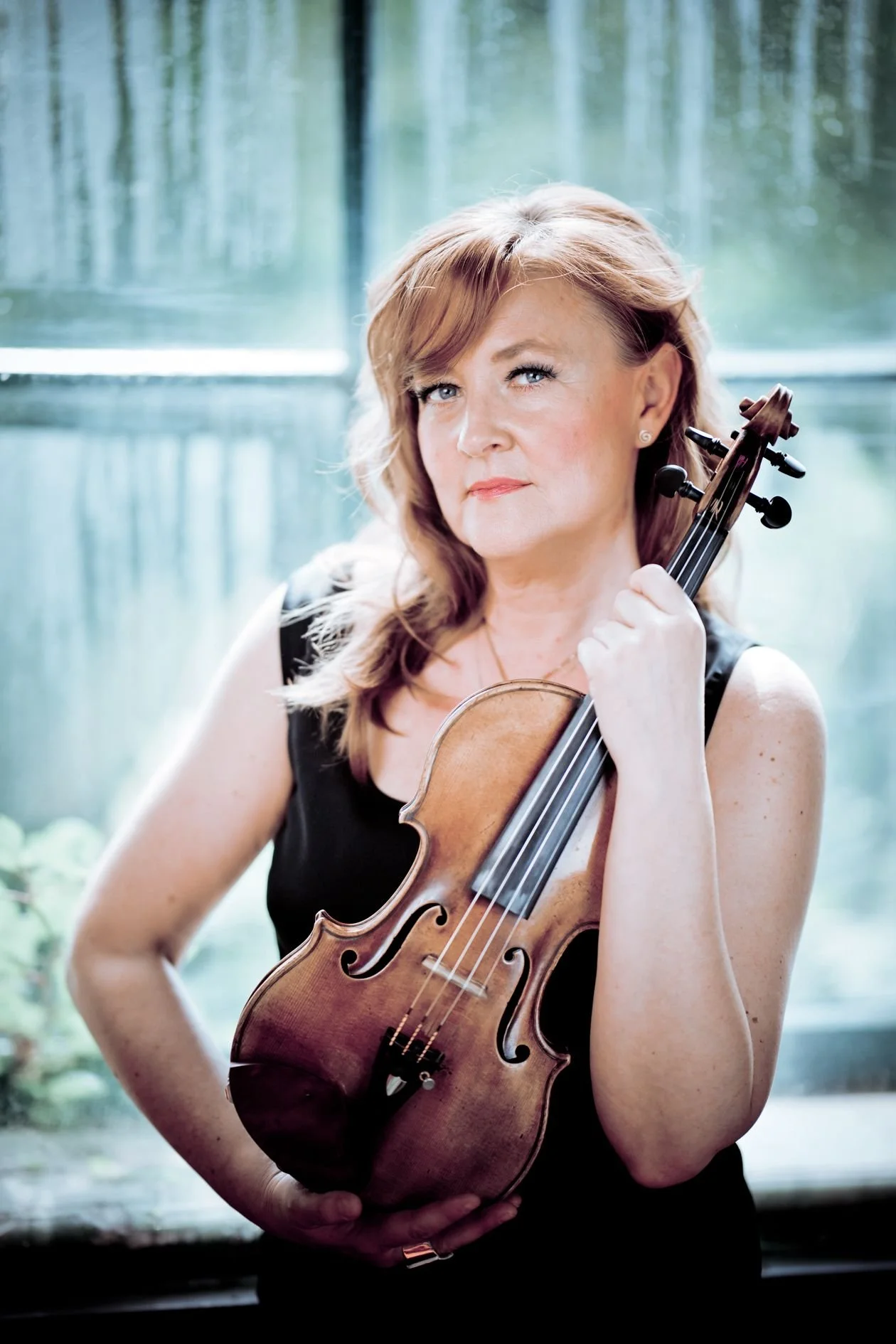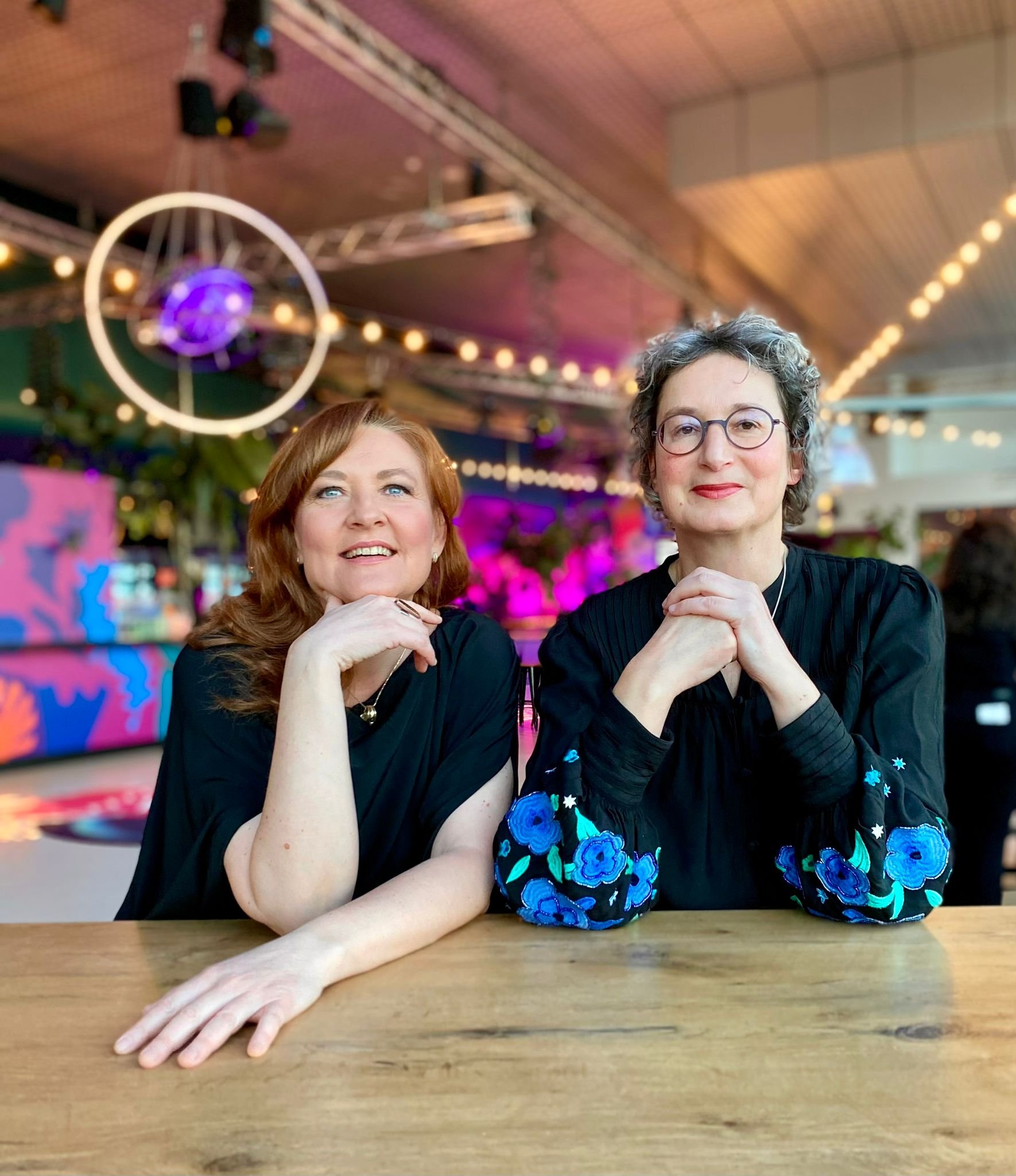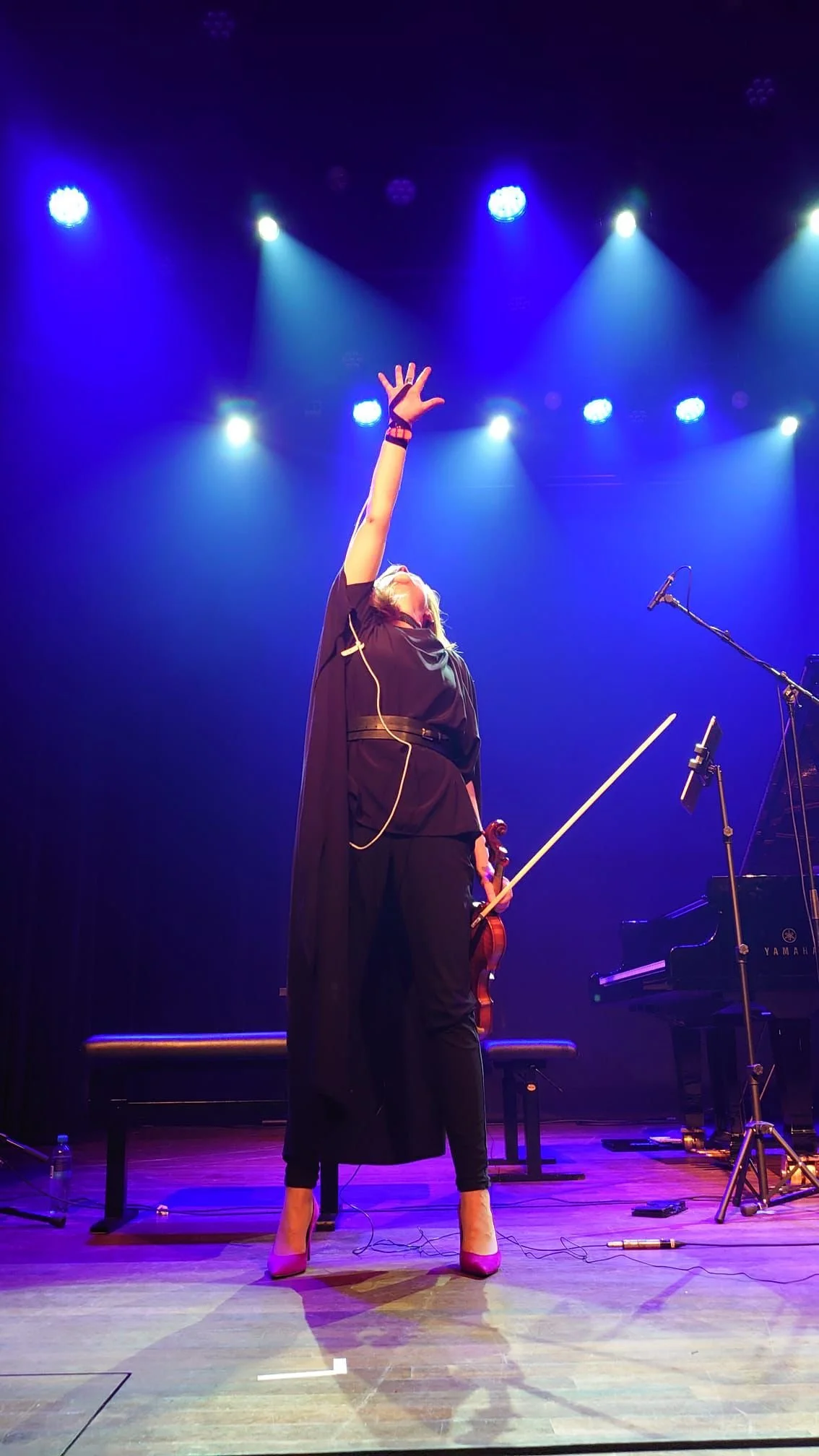Julija Hartig: Black Rainbow as a Passage into the Past and a Story of Heritage and Legacy
Interview with violinist Julija Hartig ahead of her new album Black Rainbow
Photo: Simon van BoxtelViolinist Julija Hartig, having just completed the long and deeply dedicated work on her musical autobiography – the album Dark Velvet, which audiences in Belgrade had the chance to hear at last year’s BEMUS festival – is already well into the search and creative process for her new album, Black Rainbow.
She openly shared the making of Dark Velvet with the public via social media – recording herself while practicing and recording the pieces, and speaking about her personal connections to the works and their composers featured on the album. For this project, she received the prestigious EDISON Klassiek award in 2023.
Relentlessly, she opens a new chapter of her musical writing, exploring sounds that reflect her sense of belonging and home.
With her new album Black Rainbow, Julija Hartig delves into her own DNA – her ancestral code. She describes it as a passage into the past, a personal story about heritage and legacy. On this journey of exploration, she encounters a series of signs along the way – signals and confirmations – that guide her toward a new selection of music for the album. She poses the question: Do coincidences really exist, and in what way do they manifest?
She has also launched a fundraising campaign to support the release of the album.
Music as a Deeply Rooted System of Recognition and Belonging
〰️
Music as a Deeply Rooted System of Recognition and Belonging 〰️
Your new CD Black Rainbow features works by Janáček, Enescu, Fazıl Say, as well as your own composition created in collaboration with Akim Moiseenkov. How did you approach preparing and shaping interpretations of such diverse styles – from the Czech folk inspiration in Janáček, through the Romanian-Balkan colors in Enescu, to the contemporary sound of Fazıl Say?
The repertoire on this album is, in fact, my musical and cultural DNA. The music heard in these works exists within me; I recognize it both as the sounds of my childhood and as a deeply rooted system of recognition and belonging. My family heritage is so complex and rich that I believe I can hear in Janáček’s music the words, songs, and especially the palette of emotions that feel like an inheritance from a grandmother or great-grandmother.
The Balkan mystical folklore that, for example, permeates Enescu’s sonata is entirely based on a super-folkloric style that has always fascinated me. It is music that awakens in me the deepest sense of freedom and a marvelous greed for life! This sonata is rarely performed because it is extremely complex and demands great effort from the performer to make the interpretation sound like a spontaneous improvisation of folk songs. Moreover, the musical language of this sonata cannot be simply learned – it must be lived. When I knew this sonata would hold a central place on the new CD, I did not yet know that my great-great-great-great-grandmother was born and raised in a town in Bukovina, only an hour away from the village where Enescu was born – and just a few years before him. Coincidence?
Fazıl Say’s sonata is exciting in a similar way, as it fits into an idiom inspired by folk motifs. However, he, as an exceptional artist, is also an inspiration to me because he stands as a symbol of a higher purpose – musical activism – which is something that currently intrigues me greatly.
„The music heard in these works lives within me; I recognize it both as the sounds of my childhood and as a deeply rooted system of recognition and belonging.“
Violinist Julija Hartig and pianist Reineke Broekhans
Photo: Simon van BoxtelLeoš Janáček’s sonata has been in your repertoire for over 25 years. How has your interpretation of this work evolved over time?
We were still students (pianist Reineke Broekhans and I) when we first began working on it. At the time, we approached this complex score intuitively, and it felt rather imposing and intimidating. Janáček often writes for strings in uncomfortable keys and with challenging rhythmic structures. Even then, I had a clear narrative and a theatrical approach to this music, and that has not changed in these 25 years. However, the score has become much more comprehensible and transparent to us, which now gives even greater freedom, depth of interpretation, and confidence.
Black Rainbow is a work you composed together with Akim Moiseenkov, incorporating voice recordings of your great-great-great-grandmother and your mother. How did the creation process unfold?
I was curious to take part in writing a new piece for violin and live electronics. I knew it would be called Black Rainbow and that it would have seven layers. Initially, I imagined it as an intimate reflection on a story told from seven perspectives, but one day I woke up and listened to a podcast about the ancestral code. It spoke about traumas stored in our DNA, ones we are unaware of yet still carry. I began asking myself questions that might lead to the root of my own trauma, and I arrived at the word unbelonging.
The rest was a series of coincidences: my mother, Julia Biszak, sent me a recording in which she and my great-great-great-great-grandmother, Julia Kovacz, sing the song When I Set Out into Exile. My great-great-great-great-grandmother came as a child from Bukovina together with many families who had been granted land from a drained marsh to settle on. They founded the settlement of Vojlovica near Pančevo.
That musical fragment, which sounds like a mantra, became the foundation of the piece. My mother’s voice also joined that sonic base. The remaining six layers quickly emerged as a story of longing and sorrow for one’s homeland, for what is familiar or recognizable, and for the illusion of safety it provides. All of this came to life thanks to Akim, who immediately recognized it as a process of personal self-recognition and offered a safe harbor in which he found the sounds that could portray my search.
„I began asking myself questions that might lead to the root of my trauma, and I arrived at the word unbelonging.“
The Healing Process
〰️
The Healing Process 〰️
You mentioned that working on this piece was also a personal „healing process“ through exploring your family history and migrations. How did that emotional dimension translate into the music itself?
The process was painful—just like the trauma of non belonging—the realization that even in the very core of your being you cannot find a clear definition of who you are, because none of your ancestors managed to fully be that either. It is a bouquet of possibilities and, at the same time, of rejection—the fate of all of us who wander this world unprotected, without our own tribe, fragile. That feeling, at the time of the premiere and for months afterward, led to a personal catharsis. And catharsis, as it often does, brought peace and enrichment from which new insights and limitless possibilities can grow.
„Black Rainbow is a passage into the past and a story of heritage and legacy.“
Your debut album Dark Velvet won the prestigious EDISON Klassiek Award in 2023. In what way does Black Rainbow differ from it—in concept, sound, and personal approach?
Black Rainbow is, in a way, a continuation of the story begun with Dark Velvet. Dark Velvet is an autobiography written in music, while Black Rainbow is a passage into the past and a story of heritage and legacy—sounds that depict the feeling of belonging and home. This album, like everything I do, carries a personal mark. I feel that it belongs entirely to me, in the way I wish to share it with you. Black Rainbow has given me a kind of rebirth, bringing the realization that no one is truly alone and that everything we strive for, yet may never find, gives us a driving force of the spirit.
Man and Migration
〰️
Man and Migration 〰️
At one point, you mentioned the „Great Floating Tribe“ - people who are „at home in not being at home“. How much does this concept shape your artistic work and the message you want to convey with this album?
The Great Floating Tribe is a ‘nation’ on this planet made up of a vast group of people who are not at home due to exile, displacement, the search for a better future, or a spirit of adventure. People who were born somewhere different from where their ancestors came from, and so on. I realized that the feeling of longing to belong which also inspired my next project Be-Longing is a powerful driving force, and that in this act of yearning lies the strength of curiosity and truth.
We are the ones who can bring hope for a new future, one that is emerging amid the turbulent changes shaking the world.
„Today’s systems, exhausted and decadent, are leading toward self-destruction because they have long depleted all means and possibilities for growth. The time has come for something new—for an idea and a form that have no name yet, but are already knocking at the door.“
Human beings have always been the product of migration, and we sometimes forget that today when we try to prove our belonging. The Great Floating Tribe, and a new mode of communication, understanding, and vision for the future, may already be here.
My mission is to give sound to this idea and to inspire reflection—and, above all, conversation.
Fundraising Campaign
Recording and releasing the album Black Rainbow requires substantial financial support. For this reason, Julija has launched a fundraising campaign to help bring this project to life.
The link to the website—where you can donate, read all the details about the creative process, learn more about the artists collaborating with Julija on this CD, and follow the campaign’s progress—is provided below.
Julija Hartig, in brief
Julija Hartig, a Serbian-Dutch violinist, was born in Novi Sad into a musical family. She studied violin at the Academy of Arts in Novi Sad and later continued her training in the Netherlands, graduating from the Utrecht Conservatory.
Since 2000, she has served as concertmaster of the Radio Chamber Philharmonic, and since 2013, she has held the same position in the Radio Philharmonic Orchestra of the Netherlands. She has performed as a soloist and chamber musician at major festivals and venues across Europe, collaborating with ensembles such as the St. George Strings and the Dušan Skovran Chamber Orchestra.
She is a member of several chamber ensembles, including the award-winning Duo Hartig–Brookhans and the Grammy-winning collective LUDWIG (2018). She has recorded albums for renowned labels, and her debut CD Dark Velvet won the EDISON Klassiek Award in 2023.


